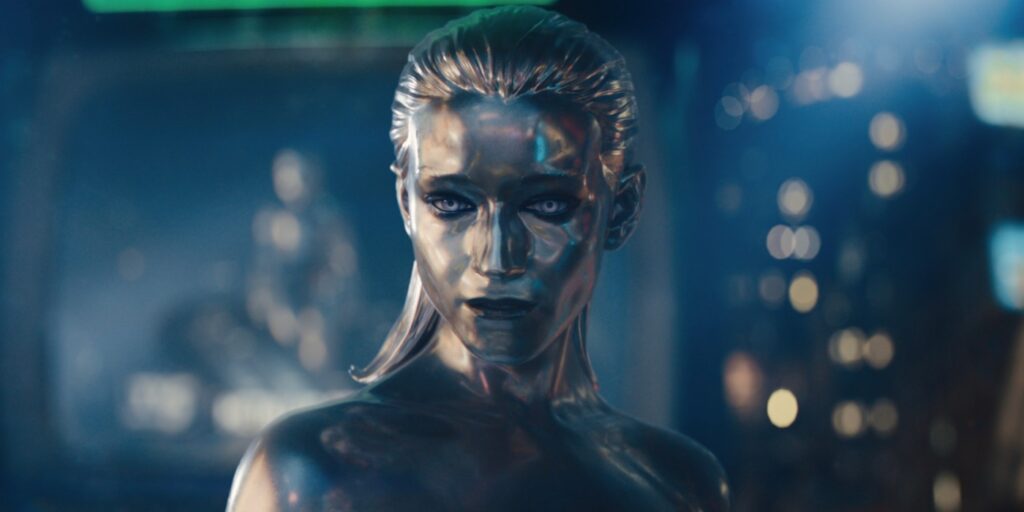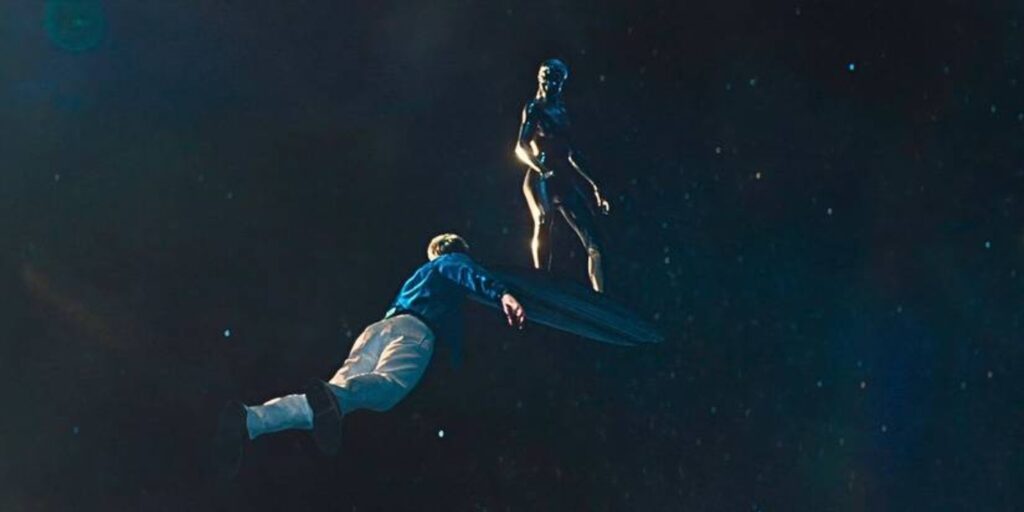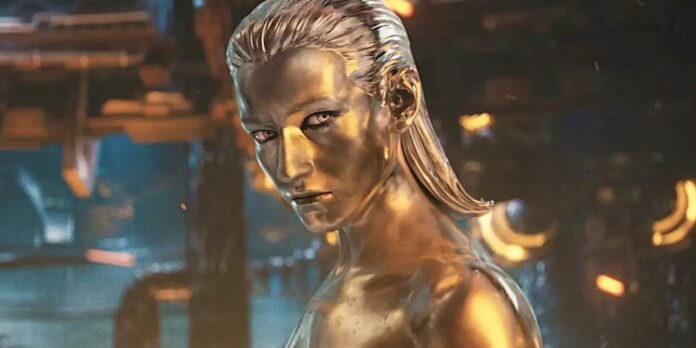When the Silver Surfer finally soars into the Marvel Cinematic Universe in ‘Fantastic Four: First Steps’, it isn’t just another comic book cameo or a shiny CGI spectacle; it’s a reinvention. The cosmic herald who used to be a symbol of sacrifice and grief has been reborn as something deeper.
The Silver Surfer is a person and feels things, and not merely a messenger of the stars. The decision of the MCU to redefine the character as Shalla-Bal, a mother, a protector, and a creature with a sense of guilt, introduces new dimensions of humanity that the earlier versions never quite managed to achieve. It is a bold artistic choice that ultimately fulfills the Surfer’s mythology. It’s a story not just about power and space gods, but about love, loss, and redemption.
Shalla-Bal’s Story Rewrites The Silver Surfer’s Soul

In earlier versions, the Silver Surfer was a sorrowful, near-saintly character. Norrin Radd, the noble man who gave his life to rescue his world against Galactus, turned into the symbol of selflessness in the universe. It was beautiful, yes, but remote. The audience liked him, but he still felt distant. ‘The Fantastic Four: First Steps’ rectifies this emotional distance by making the story about Shalla-Bal, the lover of Norrin in the comics. But instead of being the lover, she is the Surfer.
Related: Why Wonder Man Might Be The First Casualty Of Marvel’s New Avengers Saga
Her change is not the result of obligation or moral belief, but the love of her child. When Shalla-Bal makes a deal with Galactus, she does not do it to protect herself, but to guarantee the safety of her daughter. That one alteration makes a mythic story a very human one. She is no longer a foreign saint floating through the galaxies; she is a mother with the intolerable burden of her decisions. And that decision reverberates throughout the movie.
The sacrifice of Shalla-Bal turns into a chilling reflection of the dilemma that Sue Storm is facing herself – the Invisible Woman who will not give up her son Franklin, even if that means the world dying. Where the empathy of Sue gathers the world, the guilt of Shalla-Bal alienates her. Where Sue’s empathy rallies the world, Shalla-Bal’s guilt isolates her. Their contrast isn’t just compelling storytelling; it’s emotional architecture, shaping the movie’s moral backbone.
Shalla-Bal Is Similar To The Fantastic Four In Many Ways

The rewrite is not the only reason why the new Silver Surfer is so effective. It’s how she fits in with the Fantastic Four that makes it work. The members of the Marvel First Family have always represented an aspect of the human condition. Reed Richards is the symbol of intelligence, Sue Storm is of compassion, Johnny is of youth and carelessness, and Ben Grimm is the symbol of pain and strength. The Surfer is a cosmic mirror of all of them. Her intellect turned into fatalism.
In case you missed it: How Mahershala Ali’s ‘Blade’ Became Marvel’s Most Cursed Movie
Her scenes with Sue Storm are especially remarkable. The two women share more than just opposing missions; they share the same ache. Both are mothers torn between responsibility, love, and unattainable decisions. Their confrontation before Galactus’ arrival is not merely a superhero conflict; it’s a conversation about what it means to protect, to sacrifice, and to forgive oneself.
The MCU has been lacking in romance and intimacy, which this version of the Silver Surfer also brings back to life. The slight connection she forms with Johnny Storm is natural and not an artificial subplot. And even with all this, the Surfer is undoubtedly mighty. The way the movie depicts her powers is the kind of wonder that has always characterized the character. However, despite all her splendor, her most heart-rending scenes are silent ones, when she murmurs a last goodbye to her daughter on the other side.





